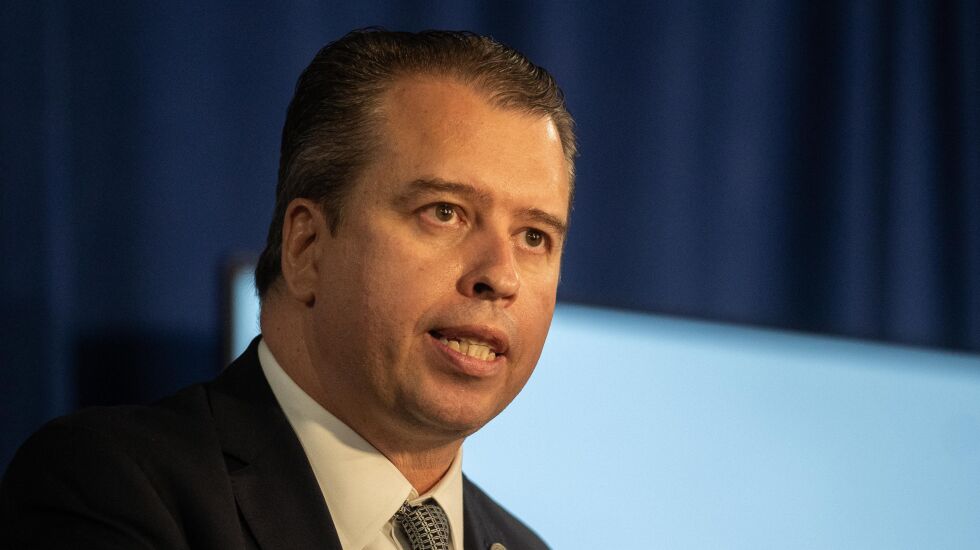
Chicago Public Schools officials said they plan to replace some “outdated” school security, camera and intercom systems in the wake of the Texas school massacre that left 19 students and two teachers dead.
The shooting at Robb Elementary in Uvalde, Texas, hit painfully close to home for CPS CEO Pedro Martinez. He served as schools superintendent for six years in San Antonio, 84 miles east of Uvalde, before returning to his hometown of Chicago to replace former CEO Janice Jackson in September.
Like most Americans, Martinez watched in horror as Texas law enforcement officials described how a heavily armed 18-year-old gunman entered the school building “unobstructed” and spent about an hour inside as police waited for a key to unlock a classroom door.
Martinez’s bi-weekly call with CPS principals Friday primarily focused on the shooting and the school system’s soon-to-be-released capital plan. Even before the Uvalde massacre, the CPS operational budget was going to include money for improving school security, Martinez said. But after hearing the details of what went on in Texas, some principals are demanding more, he said.
Educators, elected officials and Board of Education members have also called for legislation to curb access to powerful rifles that are commonly used in mass shootings.
“The No. 1 topic was around what happened in Texas, and just how people felt,” Martinez said of the call with principals. “We’ve been allowing our students, our teachers, our principals to just, frankly, just to talk about it.
“One of the things I will tell you right now that I’m already looking at — we’re about to release our capital budget for next year. We had already set resources aside specifically for technology and security. And what I heard, even this morning was, ‘Can you even do more?’ So, for example, cameras. That’s what I was hearing more about this morning from our principals saying, ‘Can we make sure that, whether it’s security systems, intercom systems— that all of those are up to date.’”
Martinez said the district’s response won’t involve adding police officers in schools. He hasn’t heard any buildings demand more police resources, he said.
Many high schools removed one or both of their Chicago police officers the past of couple years after votes by their Local School Councils — with some receiving resources in exchange for new restorative justice programs or staff.
Martinez said at the Board of Education meeting Wednesday, the day after the Uvalde shooting, that Chicago Teachers Union President Jesse Sharkey and board President Miguel del Valle had both called him when the news broke and said, “We need to talk about this here in our community.”
“We are a very small community when it comes to education,” Martinez said. “And when something happens in any school across the country, it stirs all of us, whether it’s our teachers or our parents.”





.jpg?w=600)

